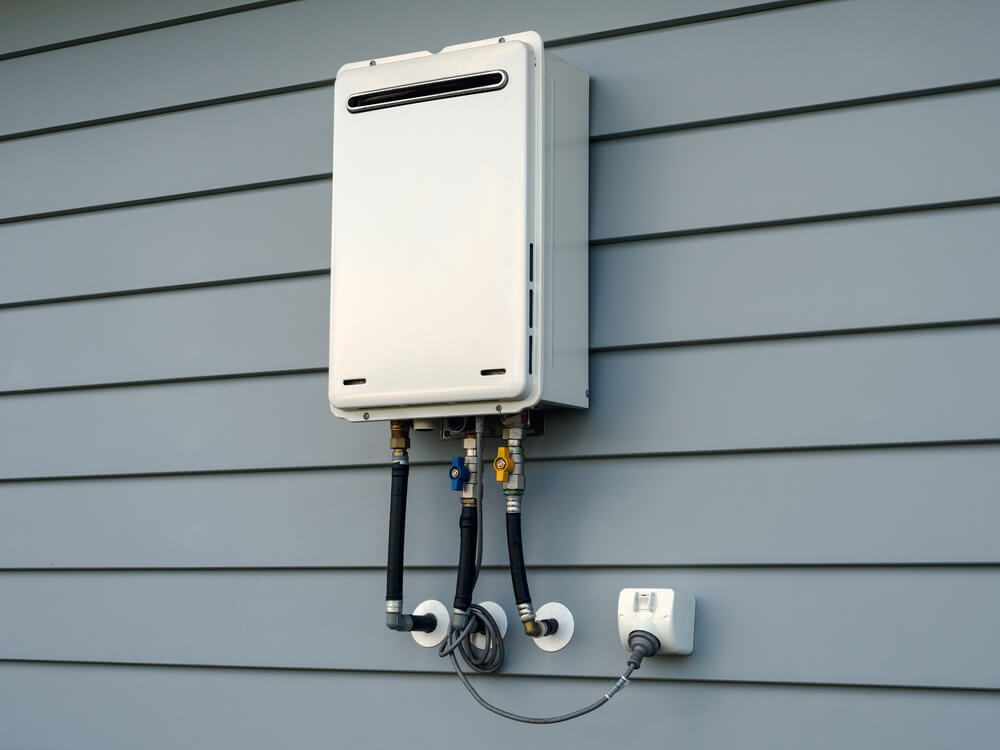Choosing the right water heater is essential for meeting your household’s hot water needs while optimizing energy usage and minimizing costs. With several water heater types available, including traditional storage tanks, tankless systems, and solar-powered heaters, deciding which option best suits your home can be challenging. This guide will walk you through the important factors to consider when selecting the right water heater.
Assess Your Household’s Hot Water Needs:
The first step in choosing the right water heater is determining how much hot water your household uses daily. Consider the number of people in your home and the peak times when hot water is in high demand, such as during showers, laundry, or dishwashing.
Questions to Ask:
- How many people live in your home?
- Do you frequently use hot water simultaneously in multiple locations?
- Are you looking for an energy-efficient option to reduce your utility bills?
Types of Water Heaters:
Different water heater types cater to various needs, so it’s important to understand the options available:
1. Conventional Storage Tank Water Heaters:
This type of water heater stores much water in a tank and keeps it heated until needed. While reliable, it can consume more energy due to standby heat loss.
Pros:
- Available in multiple sizes to suit different household needs.
- Affordable, upfront cost.
Cons:
- Higher energy costs are due to the constant heating of stored water.
- Takes up more space in your home.
2. Tankless (On-Demand) Water Heaters:

Tankless water heaters provide hot water on demand without storing it in a tank. They are highly efficient and can reduce energy consumption by only heating water when needed.
Pros:
- Energy-efficient, as no energy is wasted on storing hot water.
- Saves space, as they are compact and wall-mounted.
Cons:
- Higher upfront cost compared to storage tank water heaters.
- Limited hot water output, especially in large households.
3. Heat Pump Water Heaters (Hybrid):
Heat pump water heaters use electricity to move heat from the air or ground to heat water, making them an energy-efficient option.
Pros:
- Extremely energy-efficient and cost-effective in the long term.
- Reduces your home’s carbon footprint.
Cons:
- Higher upfront costs.
- Requires installation in areas with a stable air temperature, such as basements.
4. Solar Water Heaters:

Solar-powered water heaters use solar energy to heat water, making them an eco-friendly option for homeowners in sunny regions.
Pros:
- Renewable energy source with minimal environmental impact.
- Low operating costs once installed.
Cons:
- High installation cost.
- Effectiveness depends on the amount of sunlight your home receives.
Consider Energy Efficiency:
Energy efficiency is a critical factor when choosing a water heater. Look for units with the ENERGY STAR® label, which ensures the appliance meets energy-saving standards. Efficient water heaters not only help reduce utility bills but also minimize environmental impact.
Energy-Efficiency Features to Look For:
- Standby Loss is the amount of heat lost from the water heater to the surrounding environment. Tankless and hybrid models tend to have lower standby losses.
- Fuel Source: Choose a fuel type that is readily available in your area and cost-effective, whether natural gas, electricity, or solar.
Evaluate Installation Space and Location:
The space available for installing your water heater can impact your choice. Conventional storage tanks require more space, while tankless and heat-pump water heaters are more compact. You’ll also need to consider venting requirements for gas water heaters and access to a power source for electric models.
Installation Considerations:
- Ensure your home has enough room for the water heater of your choice.
- Check local building codes for safety and installation requirements.
- For solar heaters, assess the roof’s ability to support solar panels.
Cost and Budget Considerations:
The cost of a water heater includes both the initial purchase price and long-term operating costs. Tankless and solar heaters may have higher upfront costs but lower long-term expenses due to energy savings. Consider the total cost of ownership, including installation, maintenance, and potential repairs.
Cost Breakdown:
- Upfront Cost: Initial purchase and installation fees.
- Operating Cost: Monthly utility bills and energy consumption.
- Maintenance Cost: Long-term expenses for repairs and upkeep.
Choosing the right water heater for your home involves evaluating your hot water needs, budget, available space, and energy efficiency preferences. Whether you opt for a conventional storage tank, a tankless system, or an eco-friendly solar unit, the right choice will provide you with consistent hot water while minimizing energy consumption. Be sure to consult with a professional to ensure the installation is done correctly and meets your home’s specific requirements.

